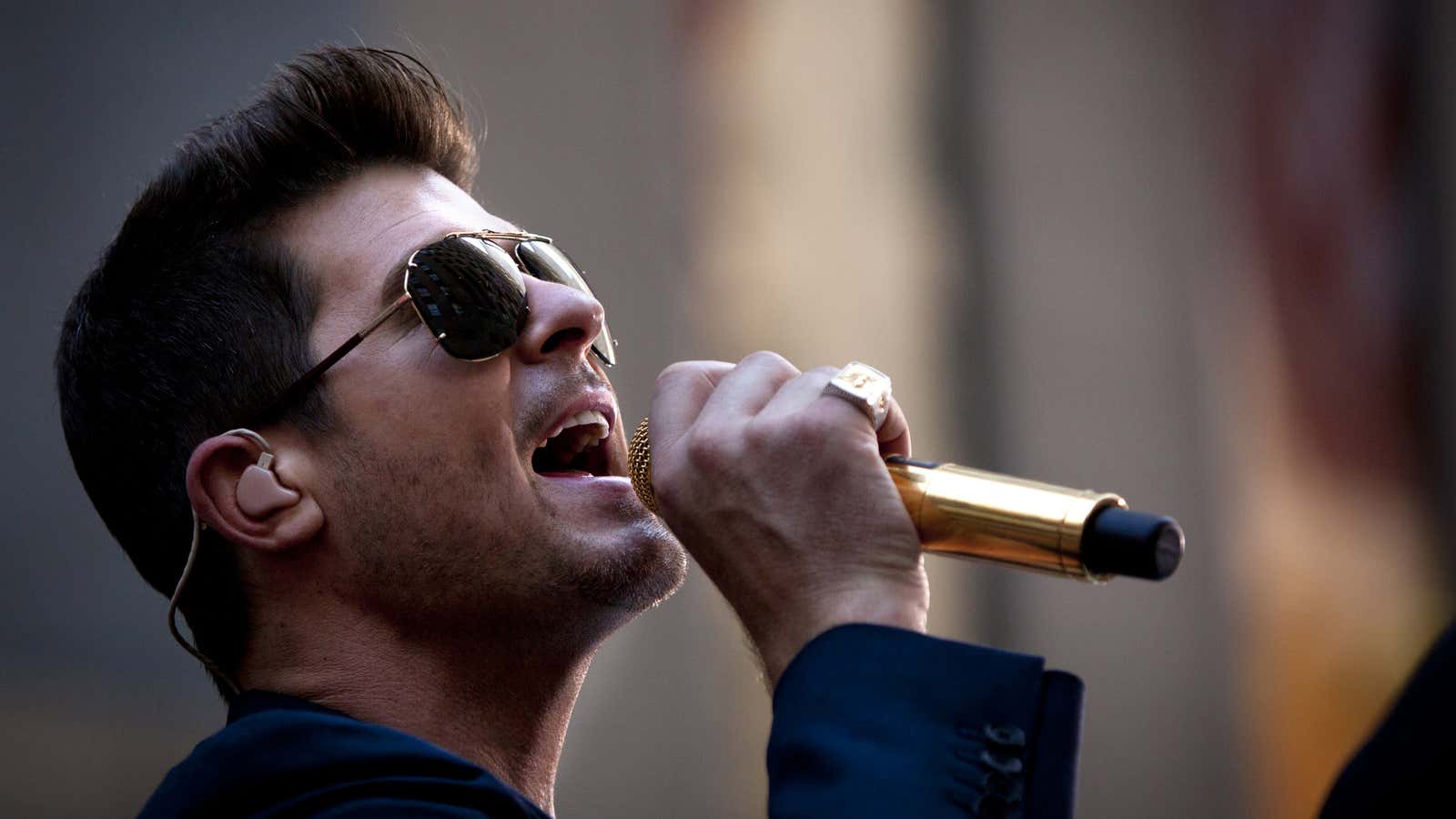The hit summer single “Blurred Lines” melds a bouncy bass line, syncopated cowbell, and the silky falsetto of singer Robin Thicke into an R&B jam that channels the 1970s grooves of Marvin Gaye—especially his song “Got to Give It Up.” But can an infectious party vibe be copyrighted?
Not according to the legal team representing Thicke and the song’s other co-writers, Pharrell Williams and Clifford Harris Jr., who filed a pre-emptive lawsuit against Gaye’s family with the Central District Court of California on Thursday afternoon, as first reported by the Hollywood Reporter. It also named Bridgeport Records, which owns the rights to music by the 70s group Funkadelic. The suit claims both defendants “continue to insist”—presumably during private conversations, since they’ve said nothing publicly—that “Blurred Lines” copied their songs, specifically Gaye’s “Got to Give It Up” and Funkadelic’s “Sexy Ways.”
Have a listen and see what you think:
Thicke and Williams have been open about the fact that they wanted “Blurred Lines” to specifically evoke the summertime vibes of “Got to Give It Up.” But any similarities between “Sexy Ways” and “Blurred Lines” are harder to discern. Bridgeport, owned by a former record producer named Armen Boladian, has been described by Slate as a “sample troll”—a company that makes its money solely by suing musicians for allegedly using unauthorized snippets of music in its catalog.
“There are no similarities between plaintiffs’ composition and those the claimants allege they own, other than commonplace musical elements,” the suit contends. “Plaintiffs created a hit and did it without copying anyone else’s composition.”
That simple word “copy” can become hellishly complex when it comes to copyright law. It’s pretty well established by now that unauthorized sampling—the act of copying an actual recorded sound, no matter how brief—is a no-no. In response, inventive hip-hop producers began creating “interpolations,” which are note-for-note sound-alike recordings that still incur royalty fees but don’t require hard-to-obtain clearance by copyright holders.
If the California Central District Court rules against the plaintiffs, and the Gaye family or Bridgeport Music proceed with their own lawsuits, the bar for creating new music could conceivably move even higher, making it forbidden to even mimic the sonic “feel” of another piece of music. The suit argues:
The basis of the Gaye defendants’ claims is that “Blurred Lines” and “Got To Give It Up” “feel” or “sound” the same. Being reminiscent of a “sound” is not copyright infringement. The intent in producing “Blurred Lines” was to evoke an era. In reality, the Gaye defendants are claiming ownership of an entire genre, as opposed to a specific work, and Bridgeport is claiming the same work.
At least one prominent musician with some skin in the game is on the side of “Blurred Lines.” Funkadelic founder George Clinton, who co-wrote “Sexy Ways,” tweeted:
